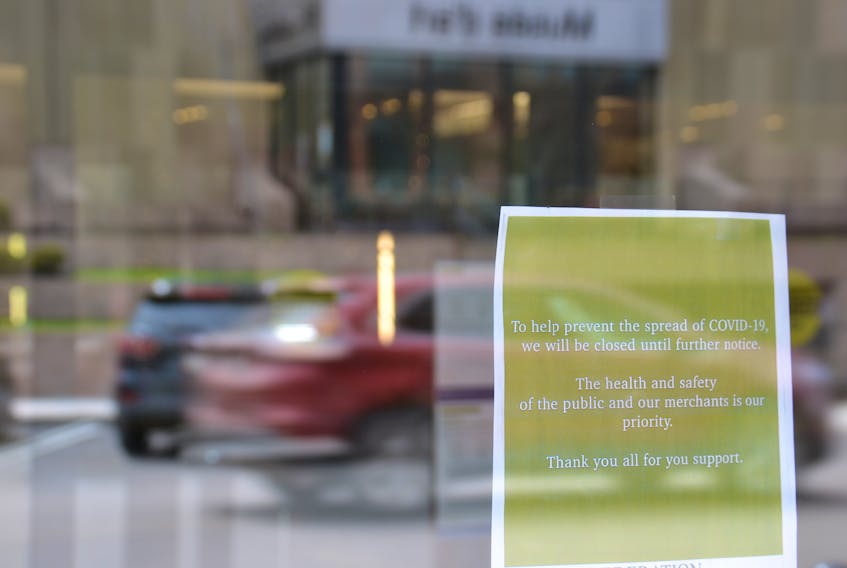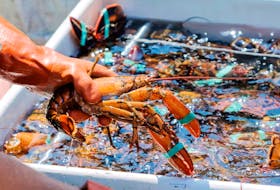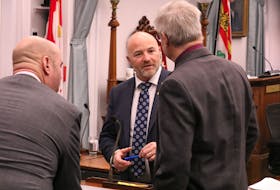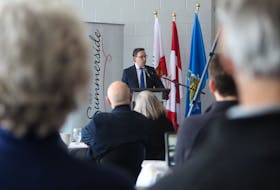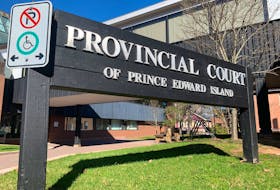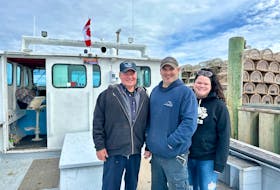A month and a half after Premier Dennis King announced the creation of the Premier’s Economic Recovery Council, aimed at helping to steer the province out of the tempestuous economic waters produced by the coronavirus pandemic, several tourism operators say the council has been effectively disbanded.
As P.E.I. begins re-opening non-essential businesses, a co-ordinated, provincewide voice for businesses, both big and small, seems to be lacking. Although dialogue and contact between industry groups and government is happening, a broad-ranging discussion on what will be needed to stimulate the economy during a serious global economic downturn appears to be lacking.
King announced the creation of the Premier’s Economic Recovery Council on March 30. King said it would consult with business leaders, discuss federal and provincial emergency programs and identify gaps in economic relief programs. King said the council would help “chart a course to recovery and return to normal, whatever that may be".
“As a group, we will continue to meet weekly and to work together until we get to the other side of this pandemic,” King said at the time.

Kevin Murphy of the Murphy Hospitality Group took part in meetings of this council. But after a few weeks of meetings the premier dissolved the council.
"The Premier's Economic Recovery Council hasn't been going for a couple weeks,” Murphy told The Guardian.
Murphy said the group also initially included Dawn Binns of the Greater Charlottetown Area Chamber of Commerce, Kent Scales of the Scales Group of Companies, Ray Keenan of Rollo Bay Holdings Ltd. and COWS Inc. CEO Jackie MacIntyre.
Murphy said the premier said in April he wanted to establish a council with a clear mandate.
Murphy said he has continued to meet weekly, through Zoom calls, an informal group of around 20 business owners to exchange concerns and information.
"My only advice to anybody was make sure you have good people surrounding you," Murphy said.
The province has provided little information about the council, including its mandate or membership, since late March. Some groups with a focus on social policy, including the P.E.I. Federation of Labour, have asked to be a part of the council.
In media statements, the Opposition Green Party has pressed government for details of the council.
King addressed a question about the council in a May 4 media conference and suggested a second council has already been assembled.
“We also have a group together that are looking more at the post-COVID, how our economy needs to change and to adapt to the post-COVID recovery process,” King said.
The Guardian has asked for further information on the mandate and composition of the Premier’s Economic Recovery Council but has received no further information from the premier’s office.
The Guardian reached out to representatives of the Retail Council of Canada, the P.E.I. Federation of Agriculture, the Construction Association of P.E.I., the Réseau de Dévelopment Économique et d’Employabilité (RDÉE), the Cavendish Beach Tourism Association and the Tourism Industry Association of P.E.I.
None of these groups said they have been a part of a broad-ranging Economic Recovery Council.
However, representatives for these organizations said they have had regular contact with officials and cabinet ministers within the P.E.I. government. Matthew MacKay, minister of economic growth, was spoken of in complimentary terms.
Most of these groups were a part of the Partnership for Growth, a provincewide lobby group of 21 business and economic development organizations that formed shortly before the 2019 provincial election. The partnership, however, has not taken an active role since the beginning of the pandemic. A consultation process initiated by the group, focused on economic growth, started in January but has been paused since March.

Matthew Jelley, president of the Maritime Fun Group and mayor of the Cavendish Resort Municipality, said he has heard the establishment of a second Economic Recovery Council is planned through Engage P.E.I.
"We need one now more than ever," Jelley said of the council.
"Public health has certainly dominated the discussion. The economic issues that are soon going to come home to roost are going to dominate the discussion for long to come."
Economists throughout the world have warned of the possibility of an economic crisis on the scale of the Great Depression. On P.E.I., this means local producers and manufacturers could face depressed export demand for local products. The tourism sector is beset by confusion, with little information about whether public health restrictions on travel will be eased in the spring or summer.
Jelley said tourism associations have been pressing government for some clarity for weeks.
“If we don't make decisions in the next six weeks or three weeks or now two weeks then you're going to lose the industry and it's not clear how many businesses would reopen," Jelley said.
Although Jelley’s focus is primarily on the tourism sector, an industry likely to face the most immediate economic hits from the pandemic, he said a provincewide body with representatives from other industries would be helpful.
“We need to figure out who can get back to work, get them back to work and get some semblance of an economy or else we're going to get more bankruptcies, more homeless, more substance-abuse, mental health issues," Jelley said.
The pandemic has already cost the Island’s economy 11,300 jobs, although the province has seen less growth in unemployment that other provinces.
The sting of the pandemic in P.E.I.
- 11,300 jobs lost since March.
- Unemployment rate up 2.8 per cent since March.
- Province projecting 20,000 fewer jobs than expected by May.
The lack of a co-ordinated voice for P.E.I.’s business community is not entirely due to government.
As the pandemic hit in March, some longstanding industry organizations have been experiencing a change in leadership. Penny Walsh-McGuire, who has served as executive director of the Greater Charlottetown Chamber of Commerce since 2016, is currently on maternity leave. Kevin Mouflier, former CEO of the Tourism Industry Association of Prince Edward Island, stepped down from his role soon after the pandemic began.
Murphy said the absence of these voices in recent weeks has been noticeable.
"The associations, normally they're your voice,” Murphy said.
“You definitely hear the fishing industry's voice and you definitely hear the agricultural industry's voice."
UPEI economist Jim Sentance said a key role of a plan for a post-pandemic economy would involve clarifying how different industries can get back to work safely, while minimizing the possibility of a resurgence of the virus.
Several industry groups, such as the Greater Charlottetown Chamber of Commerce and the Retail Council of Canada have been working with public health officials to establish guidelines for the safe reopening of businesses beginning on May 12.
Sentance said government should also help businesses identify how to stimulate demand for P.E.I. products and services.
But another role for stimulating the economy could involve social concerns, particularly around the labour market.
"I think one of the things that's really necessary, and I don't think that's talked about enough, is childcare," Sentance said.
"There's a fair number of parents out there that are just not going to be able to go back to work."
Recent unemployment numbers from Statistics Canada indicate unemployment rates for women are far higher than men on P.E.I. This may be due in part to the heavy concentration of job losses in service sector industries like tourism.
It is also extremely likely women have taken on the greatest role as caregivers for children during the pandemic.

